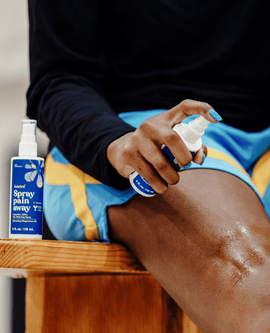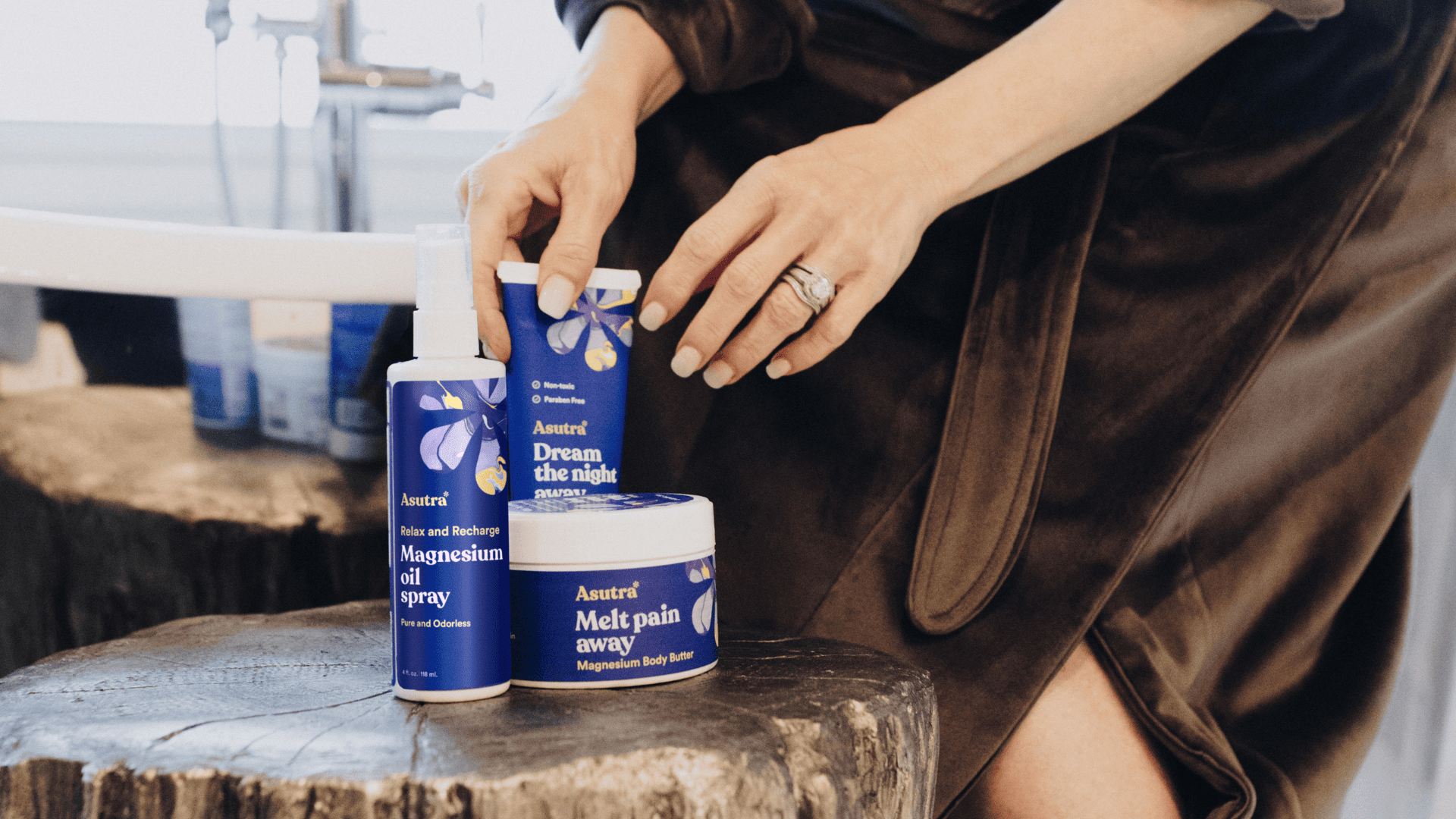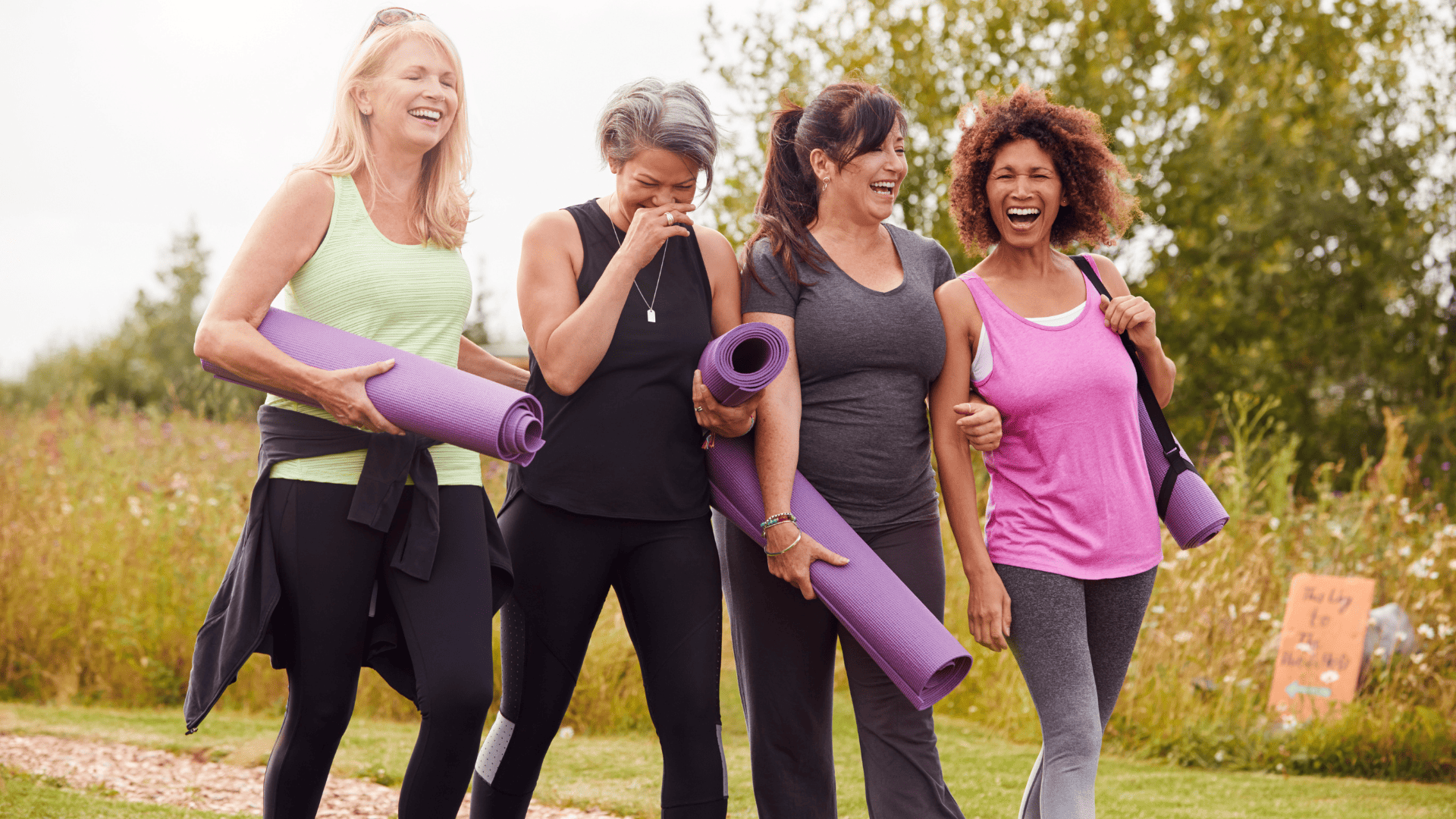We are thrilled to have Sally Mueller, Co-founder and CEO of Womaness, share her sleep tips and expertise on our blog. Womaness is a favorite brand of ours; offering an amazing collection of modern menopause products created by women for women (we LOVE that). Through innovative products, essential information, and unlimited inspiration, Womaness takes the “pause” out of menopause and sparks the power of menopositivity (we LOVE that too).
If you want to learn more about Womaness and save 15% on your first product purchase, click here.
Are you a night owl or a morning person?
Definitely a morning person….I wake up every day around 6:30 am (and yes, even on the weekends). It’s my quiet time and when I can most clearly think. This is when I get my best work done.
What does your bedtime routine look like?
These days, sleep has become a top priority for me. If I don’t get 7 – 8 hours of shuteye, I am simply not productive the following day (plus, admittedly, I’ll be a bit crabby…ask my family). The most important part of my routine is committing to climbing into bed at the same time every night, between 9:30 – 10:00PM. I’ve found it really helps me train both my body and mind to be ready for rest. Before bedtime, I always cleanse and hydrate my skin with my favorite Womaness products. To really help me relax and unwind, I also stop responding to text messages and scrolling through social media at least an hour before bed; that’s been a game-changer for me. If I’ve had a night of wine drinking—because hey, life and a good glass of Burgundy sometimes happens—I’ll cut it off at least two hours before bed, as alcohol has really shown to disrupt my sleep. Lastly, I make sure I have the room set to a cooler temperature and have a fan aimed at me. My husband even packs my little fan on our vacations…I know this sounds ridiculous, but it really does help me stay asleep! There’s something about the cool air blowing on my face that helps me avoid overheating or having a night-sweat attack.
Why is sleep extra important during menopause?
At this stage, there are so many demands on us. In addition to the hormonal changes, many of us are juggling careers, kids at home, taking care of aging parents, and other stressors. Personally, I cannot provide for everyone if I’m completely exhausted—so sleep HAS to be a priority. It’s also super important for optimal health. During sleep, our bodies consolidate our memories and experiences, restore and rejuvenate, repair tissue, grow muscle, and synthesize hormones. Most sleep experts agree that it also helps prevent disease and boost our vitality.
How has entering perimenopause and menopause affected your sleep?
Looking back, I realize the quality of my sleep really took a nosedive when I started to go through perimenopause. At the time, I didn’t know why my sleep was suffering (or even what perimenopause truly was). But now I’ve learned so much more about the impact of changing hormones on sleep and your ability to feel calm, fall asleep, and stay there through the night. My night sweats really interfered with my sleep at first, and lately, as I’ve progressed further into menopause, joint pain and anxiety are beginning to kick in.
Why does this happen in these stages?
I’ve learned so much about this personally and from the experts we’re partnering with at Womaness. According to Julia Walker, a RN and BSN, the circadian rhythm is an internal clock that regulates our sleep habits. It is very sensitive to several things, including light and hormonal changes. For example, estrogen and progesterone levels begin to change in perimenopause as your ovaries slowly begin to stop producing eggs. Estrogen specifically has a powerful impact on your brain and on neurohormones, like melatonin, the sleep hormone.
In the journal Sleep Science, a comprehensive study revealed that melatonin levels decrease during perimenopause. Incidentally, men also appear to experience a decrease in melatonin with age as well. However, the severity of sleep disturbances looks more significant in women compared to men. So it’s likely is a combo of age and changing hormones that may cause women to experience insomnia in menopause and beyond.
What are your favorite sleep tips / hacks for women in menopause?
Take my word for it: it’s so important to establish a sleep regimen. I used to travel quite a bit to New York and LA while going through menopause and was constantly struggling with my sleep. Now that I’m traveling less and can hit the hay at the same time every night, I see a huge difference. During the day, I also make sure to drink several glasses of water, as staying well hydrated has definitely helped my quality of sleep. Getting exercise can also help me unwind and burn off of a little nervous energy. My preferred way to do that is through a Pilates class or playing tennis, but in a pinch, taking a walk during the day or early evening is my go-to.
What are the 3 things that are always on your nightstand?
I’m a big fan of the Womaness Let Me Sleep supplement, which has a sustained-release melatonin, GABA to reduce stress, and magnesium. I’ve got Asutra’s Melt Pain Away magnesium body butter, which I use religiously on my achy upper traps and neck area to release stress and get an instant “ahhhhhh.” And I always have a glass of water in case I get thirsty in the night (hydration, hydration, hydration!).






